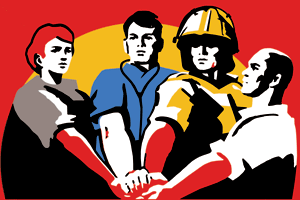 People have different strengths.
People have different strengths.
Some people excel at technical tasks, some are better leaders; some people have what it takes to be successful entrepreneurs, and some people are inventors.
Michael Gerber (author of The E-Myth Revisited) describes our human condition as one in which multiple personalities within each of us are constantly battling with each other. The health nut inside of us wants to go to the gym, while another part of us says that we deserve a break and a burger.
We’re whole people, but none of us is a single personality type with just one purpose or talent. To quote Walt Whitman: “I am large, I contain multitudes.”
Does strict division of labor create unhappiness?
We often revere polymaths, or people who represent the refusal to be compartmentalized. Steve Jobs was certainly not content to just find his niche and leave other areas of expertise to someone else. The same goes for Bill Gates, Leonardo Da Vinci, Maya Angelou, and Al Gore.
But, the complexities and pressures of our civilization require most people to be niche performers, without whom many things would simply fall apart! Does this compartmentalization cause people to be exploited and to stagnate, or is it possible for highly specialized people to change and grow?
The problem seems to be that society tends to see specific technical skills as more difficult to obtain, but managers are paid more. There are highly technically skilled people who are incapable of finishing a project without a strong project manager. On the other hand, project managers would have nothing to manage without the technical workers. It would seem that a mutually respectful relationship between equals should exist here.
What happens, though, is that when technical people become really good and want to move to the next level, they’re encouraged (by higher pay and by perceived additional “status”) to work towards management jobs, where they’re often unhappy and fail.
What are we doing?
At WatzThis?, our small business is a collaboration (one that we admit, we’re still working out). WatzThis? has very blurry lines between the different roles we each play in the business. While we both have our individual strengths; we don’t place a higher value on “creative technical talent” and “creative business talent”. They mutually coexist in a symbiotic fashion.
It would be interesting to see large corporations implement the same democratic division of labor as WatzThis? — one in which everything is equal, and everyone is involved in every decision equally. Would it be realized that the free market economy is doomed to fail and WatzThis? has created the most brilliant business model to ever exist? Only time will tell.
